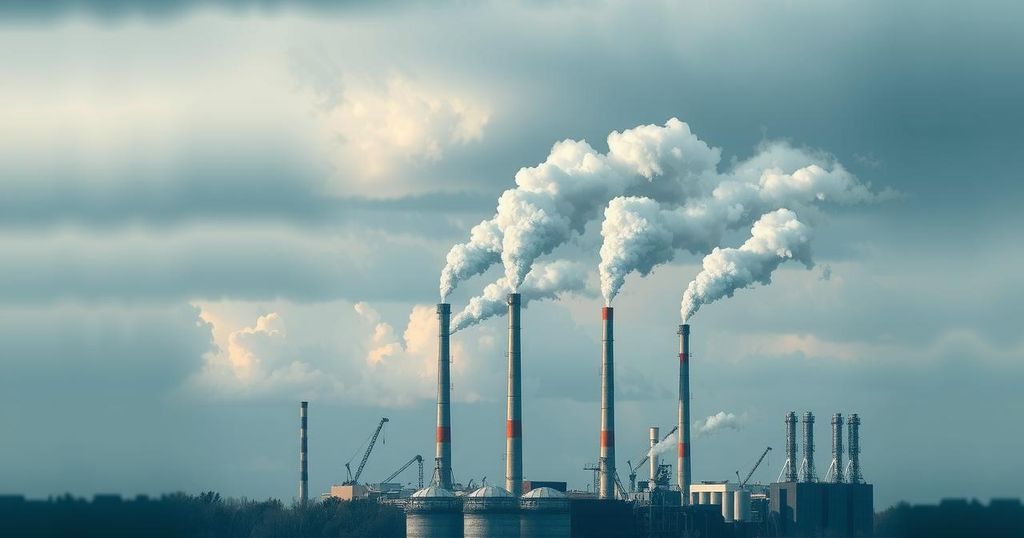China has missed its 2024 emissions target, raising concerns about its carbon neutrality goals. Its carbon intensity fell 3.4%, below the planned 3.9%, while ongoing reliance on coal and rising energy demand complicate progress. Nevertheless, advancements in renewable energy indicate potential pathways for future development in combating climate change.
China’s recent failure to meet its carbon emissions target for 2024 has sparked significant concern regarding its commitment to achieving carbon neutrality. According to the National Bureau of Statistics, China’s carbon intensity decreased by merely 3.4 percent, missing the anticipated target of 3.9 percent. Furthermore, the nation is lagging behind its ambition to reduce carbon intensity by 18 percent between 2020 and 2025, as outlined in the Chinese Communist Party’s latest five-year plan.
Under President Xi Jinping’s “dual targets,” China aims to reach peak emissions before the decade’s end and achieve carbon neutrality by 2060. The nation, known as the largest global polluter accounting for about 30 percent of total emissions, is also a leading investor in renewable energy. Its ability to fulfill these emissions targets will significantly impact international efforts to limit global temperature rise to 1.5 degrees Celsius, a threshold emphasized by the United Nations to prevent severe climate repercussions.
While carbon intensity measures are pivotal in evaluating China’s decarbonization efforts, analysts note the disparity between economic growth and emissions reduction. Muyi Yang, a senior energy analyst, highlighted that despite a 5 percent growth in the economy, electricity demand surged 6.8 percent, leading to a 0.8 percent rise in carbon emissions, due to the reliance on industrial expansion following the COVID-19 economic downturn.
China’s formidable heatwaves have further complicated emission reduction strategies, disrupting hydropower generation and prompting increased coal usage to meet energy needs. Nonetheless, Beijing has made striking advancements in renewable energy, fulfilling 14.5 percent of its total energy demand from wind and solar and an additional 13.4 percent from hydropower in the previous year. Eric Fishman from Lantau Group noted that these figures represent substantial clean energy progress.
Government backing, especially from the highest CCP echelons, has spurred this growth. Xi Jinping’s governing ideology accentuates the pursuit of an “ecological civilization,” with notable initiatives initiated such as the Emissions Trading Scheme, the most extensive carbon trading market worldwide.
As China transitions towards higher-value manufacturing, analysts are closely monitoring future carbon emissions targets set to be announced alongside the upcoming five-year plan. While reaching peak carbon emissions by 2030 appears achievable, concerns linger regarding a sustainable exit from coal and the necessary systemic reforms. Yao Zhe from Greenpeace East Asia asserted that substantial changes are vital for the energy sector and the broader economy, emphasizing that decisive actions must begin promptly following the peak.
In summary, China’s failure to meet its emissions targets for 2024 has raised alarms about its commitment to global climate goals. While it has made strides in renewable energy, challenges such as increasing energy demand and an over-reliance on coal remain significant hurdles. The coming years will be critical, as the nation prepares to announce new emissions targets and must undertake structural changes to ensure a sustainable transition towards carbon neutrality.
Original Source: www.aljazeera.com




